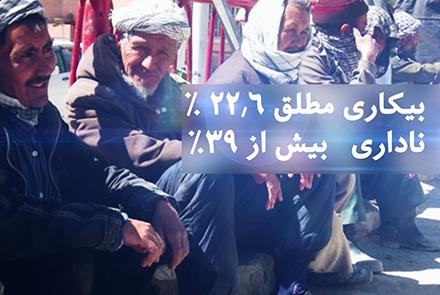Officials from Afghanistan’s Ministry of Economy (MoEc) on Wednesday said that the poverty and unemployment rates have significantly increased despite efforts over the past few years to develop the country.
Thirty nine percent of the people live below the poverty line and 23 percent of Afghans are unemployed, said Suhrab Bahman, spokesman for the ministry of economy.
Meanwhile, a number of economic commentators have said that the National Unity Government (NUG) under President Ashraf Ghani and Chief Executive Abdullah Abdullah has failed to address the issue of poverty and unemployment over the past three years.
According to the ministry of economy, Afghanistan’s economic growth rate this year has been around 0.5 percent following a visible increase in the country’s exports abroad, but poverty and unemployment remains a huge challenge.
But officials of the labor union have said that the scale of poverty and unemployment is higher than the figure announced by government officials.
“Unemployment and poverty are still among major challenges in the country so we are trying to undertake a number of programs to alleviate poverty and resolve the problem,” said Bahman.
Previous reports stated that a survey conducted by Central Statistics Organization (CSO) indicates that the ratio of poverty and unemployment could be over 50 percent in the country.
But the CSO has not shared the results of the survey with the public.
“Based on the statistics, the unemployment rate in the country is around 39 percent, the ratio of poverty has also increased significantly,” said Abdul Maroof Qaderi, chairman of the labor union.
“Government does not have systematic programs,” said economic expert Mohammad Ali Mashal.
Talking on the economic legacy of NUG over the past three years, a number of residents in Kabul have said that their financial situation is worse since the NUG assumed control in 2014.


